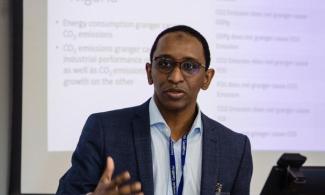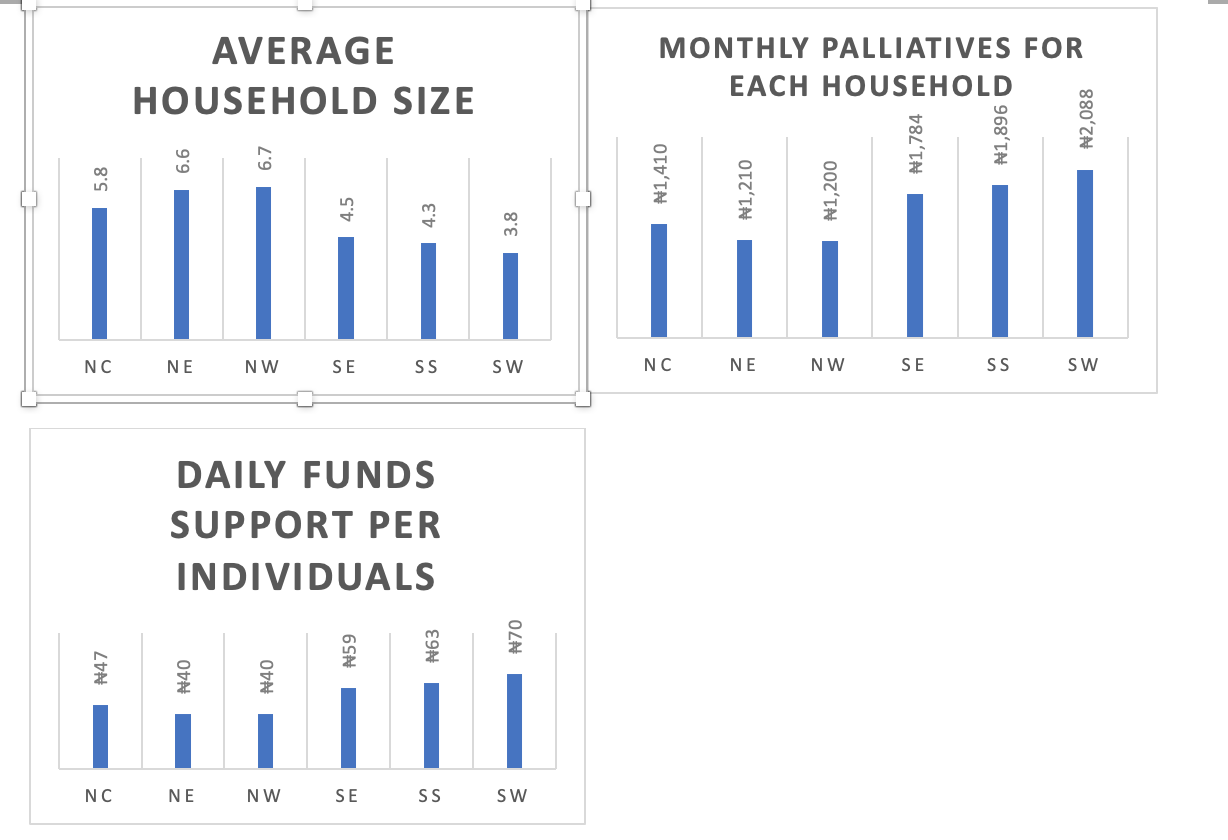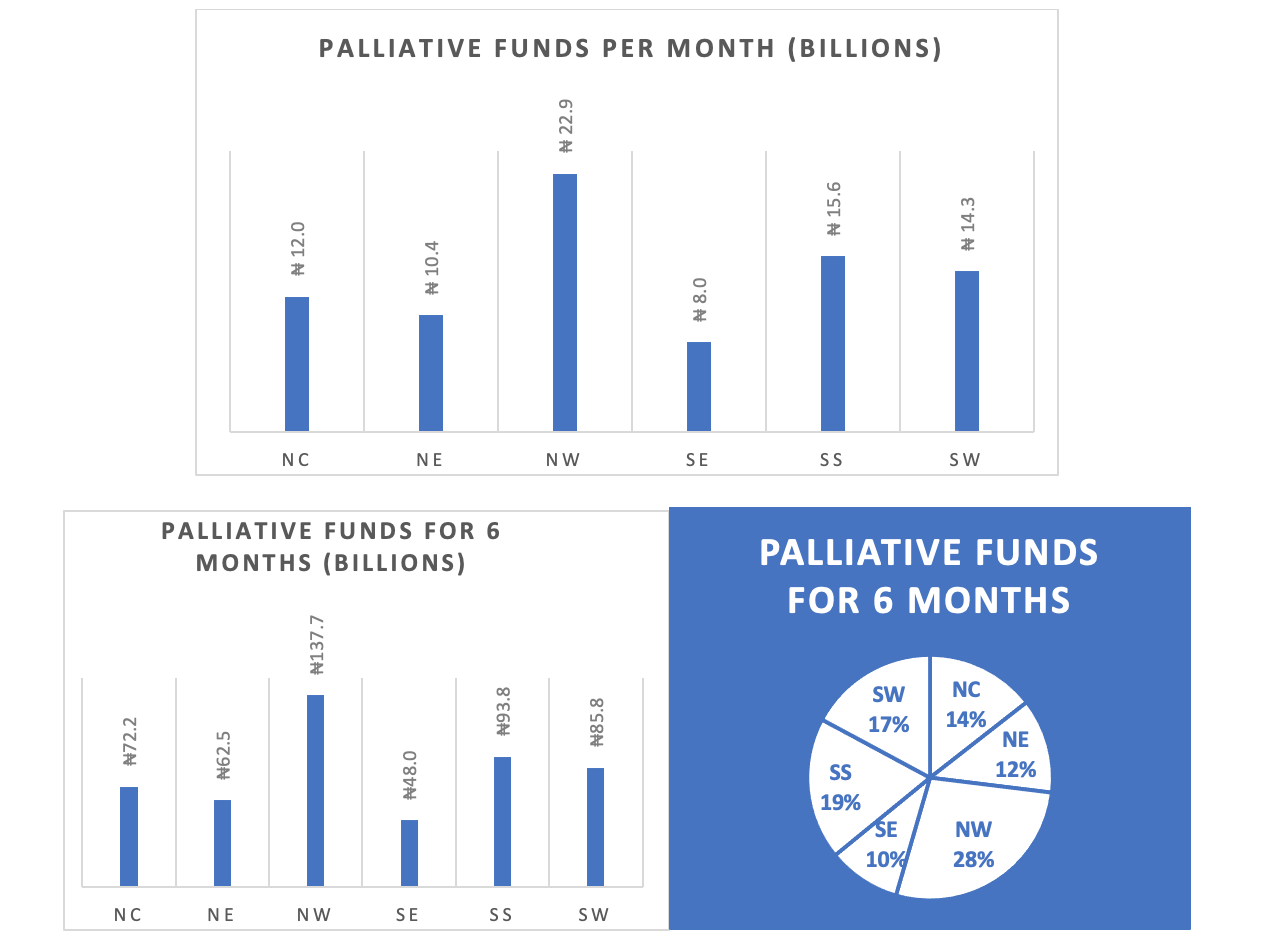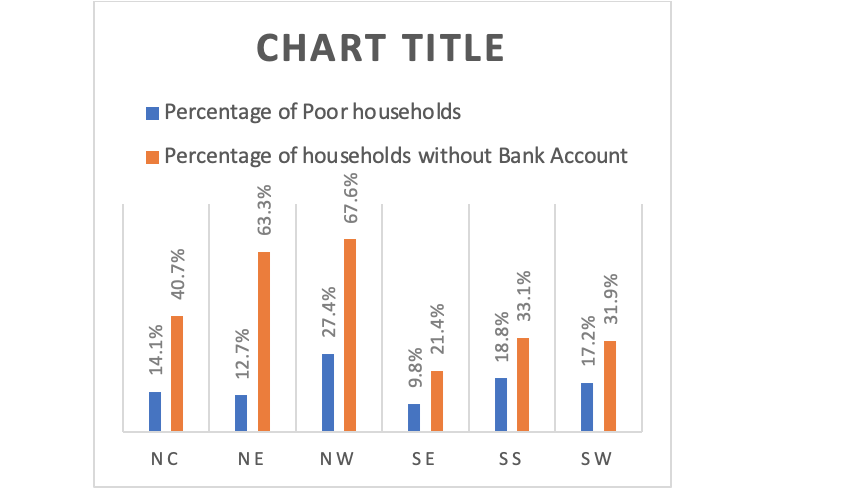
The government has decided to disburse the palliative support for fuel subsidy removal. However, they need to be effective in the programme since it will be difficult to challenge them to reconsider doing it. As the implementation begins, the significance of getting it right becomes paramount, for once the funds are distributed, it becomes a formidable task to challenge or persuade the government to reconsider its approach.
What was approved
The National Assembly approved ₦819.5 billion for the 2023 Supplementary Budget with significant allocations for different sectors. The budget set aside ₦500 billion as the provision for fuel subsidy removal to Nigerians, the Ministry of Works & Housing is allocated ₦185.2 billion, the Ministry of Agriculture will receive ₦19.2 billion, the National Judicial Council is allocated ₦35 billion, FCTA projects will receive ₦10 billion, and the New National Assembly Members, about 469 of them, will share ₦70 billion. The lack of consideration for civil servants raises concerns about fairness.
Fairness in Distribution
Achieving balanced economic development necessitates prioritising fair distribution, as it lays the foundation for an equitable and prosperous economic landscape. To address existing disparities, it becomes crucial to establish an accurate sharing formula that ensures fairness when allocating funds to each state. By implementing such a transparent and equitable process, the government can demonstrate its commitment to good governance and promote a system that benefits all stakeholders. This approach will help foster trust, promote inclusivity, and contribute to more balanced development.
Beneficiaries and the Cost of Rushing to Approve the Budget
Given the government's announcement that they will target poor households, the NBS's multidimensional poverty index (MPI) data is used as a guidepost for the targeted households. The government plan to distribute N8,000 to 12 million poor households over six months as palliative support will benefit an estimated 64.88 million individuals out of 132.93 million poor people. This means 68.05 people will still need an explanation as to why they were neglected.
Also, given that the National Assembly only approved ₦500 billion, assuming administrative costs are not inclusive, the government can only select 10.42 million to receive the palliative fund, where 5.68 million poor households will be selected from the North and 4.74 million from the South. The targeted total will reduce to 56.32 million poor people. The reduction leaves out 9 million more individuals without assistance. The oversight by the National Assembly in reviewing the budget raises questions about their attention to detail, which is a crucial aspect of governance.
Who gets what?
In the estimation, the poor individuals are grouped into households by dividing them by the average household size data. This gives the total number of poor households—around 24.67 million, 13.3 million in the North and 11.3 million in the South. From this figure, the government will select the 12 million households to receive ₦8,000 over six months.
In an initial thought, an ₦8,000 monthly support will amount to ₦267 per day. However, if household size is considered, the story will differ.

With an average household size of 6.7 in the North-West, a household that receives ₦8,000 per month will be shared between 6.7 people, which amounts to ₦1,200 per person and ₦40 per day, similar to the North-East. Those living in the North-Central with an average household size of 5.8 persons per household will get ₦1,4,10 per person and ₦47 daily.
The figure differs in the South. In the South-West, the ₦8,000 per month will be shared between 3.8 people, which makes them get about ₦2,088 per person and about ₦70 per day. Similarly, in the South-East, the palliative will be shared between 4.5 people, which makes them get about ₦1,770 per person and about ₦59 per day.
|
Palliative Funds Per Month (millions) |
Palliative Funds for 6 Months (millions) |
|
|
Abia |
₦912 |
₦5,471 |
|
Adamawa |
₦1,824 |
₦10,947 |
|
Akwa Ibom |
₦3,909 |
₦23,456 |
|
Anambra |
₦1,202 |
₦7,211 |
|
Bauchi |
₦2,841 |
₦17,046 |
|
Bayelsa |
₦2,390 |
₦14,338 |
|
Benue |
₦3,031 |
₦18,185 |
|
Borno |
₦1,152 |
₦6,910 |
|
Cross River |
₦2,988 |
₦17,925 |
|
Delta |
₦2,155 |
₦12,929 |
|
Ebonyi |
₦2,387 |
₦14,322 |
|
Edo |
₦1,046 |
₦6,278 |
|
Ekiti |
₦1,264 |
₦7,587 |
|
Enugu |
₦2,162 |
₦12,971 |
|
FCT |
₦888 |
₦5,327 |
|
Gombe |
₦1,525 |
₦9,150 |
|
Imo |
₦1,342 |
₦8,054 |
|
Jigawa |
₦2,388 |
₦14,326 |
|
Kaduna |
₦4,353 |
₦26,118 |
|
Kano |
₦5,044 |
₦30,262 |
|
Katsina |
₦3,438 |
₦20,628 |
|
Kebbi |
₦2,263 |
₦13,577 |
|
Kogi |
₦1,970 |
₦11,818 |
|
Kwara |
₦1,229 |
₦7,371 |
|
Lagos |
₦4,062 |
₦24,371 |
|
Nasarawa |
₦700 |
₦4,202 |
|
Niger |
₦1,622 |
₦9,730 |
|
Ogun |
₦3,161 |
₦18,966 |
|
Ondo |
₦1,132 |
₦6,792 |
|
Osun |
₦1,580 |
₦9,480 |
|
Oyo |
₦3,093 |
₦18,557 |
|
Plateau |
₦2,602 |
₦15,609 |
|
Rivers |
₦3,143 |
₦18,856 |
|
Sokoto |
₦3,310 |
₦19,860 |
|
Taraba |
₦1,486 |
₦8,914 |
|
Yobe |
₦1,588 |
₦9,530 |
|
Zamfara |
₦2,154 |
₦12,925 |
|
Totals |
₦83,333 |
₦500,000 |
Across the states, the top five states that are expected to receive the highest monthly palliative funds are Kano, Kaduna, Lagos, Akwa Ibom and Katsina due to their high numbers of poor households. They will receive ₦5 billion, ₦4.4 billion, ₦4.1 billion, ₦3.9 billion, and ₦3.4 billion, respectively. FCT, Abia, Edo, Ondo, and Borno are the five states receiving the lowest palliative funds. Due to their low number of poor households, they will receive ₦888 million, ₦912 million, ₦1.05 billion, ₦1.13 billion, and ₦1.5 billion, respectively. During the six months programme, Kano, Kaduna, Lagos, Adamawa, Zamfara, Nasarawa, Abia, and Adamawa should receive around ₦30.3 billion, ₦26 billion, ₦24.4, ₦12.9 billion, ₦10.2, ₦5.5 and ₦4.2 billion, respectively.

The geopolitical zone with the highest allocation in a month and over the six months will be North-West with ₦22.9 billion and ₦137.7 billion, respectively. South-South and South-West follow them with ₦15.6 and ₦14.3 monthly allocation and 93.8 billion and 85.8 billion over six months, respectively. The South-East will get the lowest funds due to its low number of poor households.
The Big Challenge -- Disbursement

The cake-eating problem arises in fair distribution when determining how the funds will effectively reach the intended groups. The multiple indicator cluster survey data reveals a concerning trend: the number of individuals without bank accounts surpasses the number of poor households in the country. This presents a challenge in ensuring equitable access to financial resources.
Therefore, the fuel subsidy removal palliative programme raises concerns about impacting the number of benefiting households. Data reveals a hurdle in fair fund distribution because individuals without bank accounts outnumber poor households. Effective strategies are needed for financial inclusion and equitable distribution. These challenges emphasise the importance of meticulous budget scrutiny, attention to detail, and innovative approaches to achieve equitable distribution and inclusive governance.
N.A.